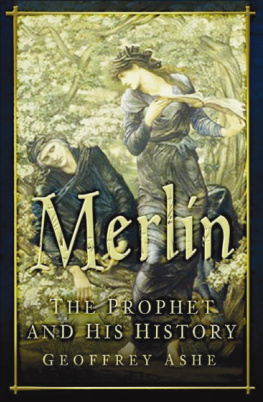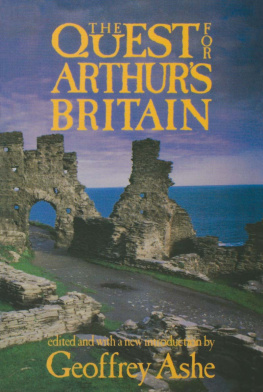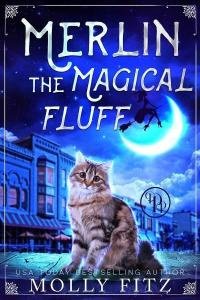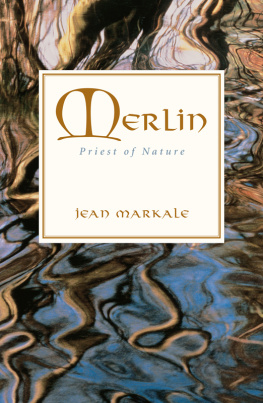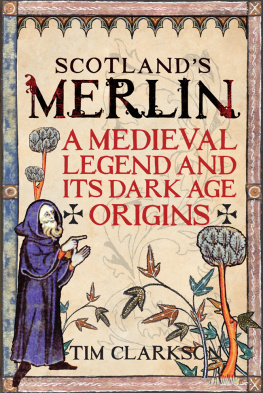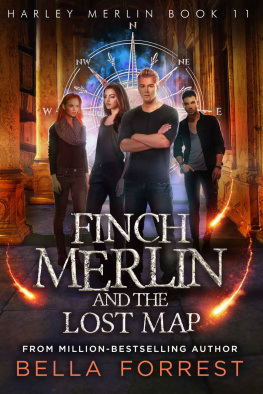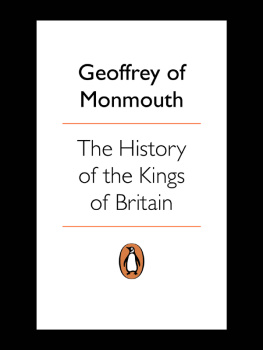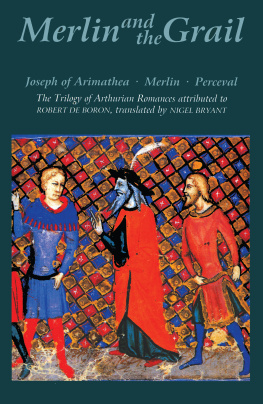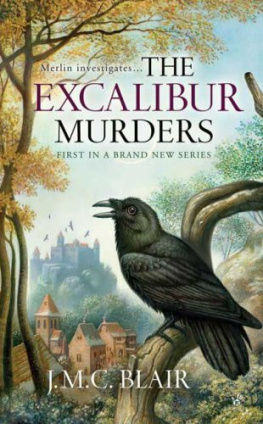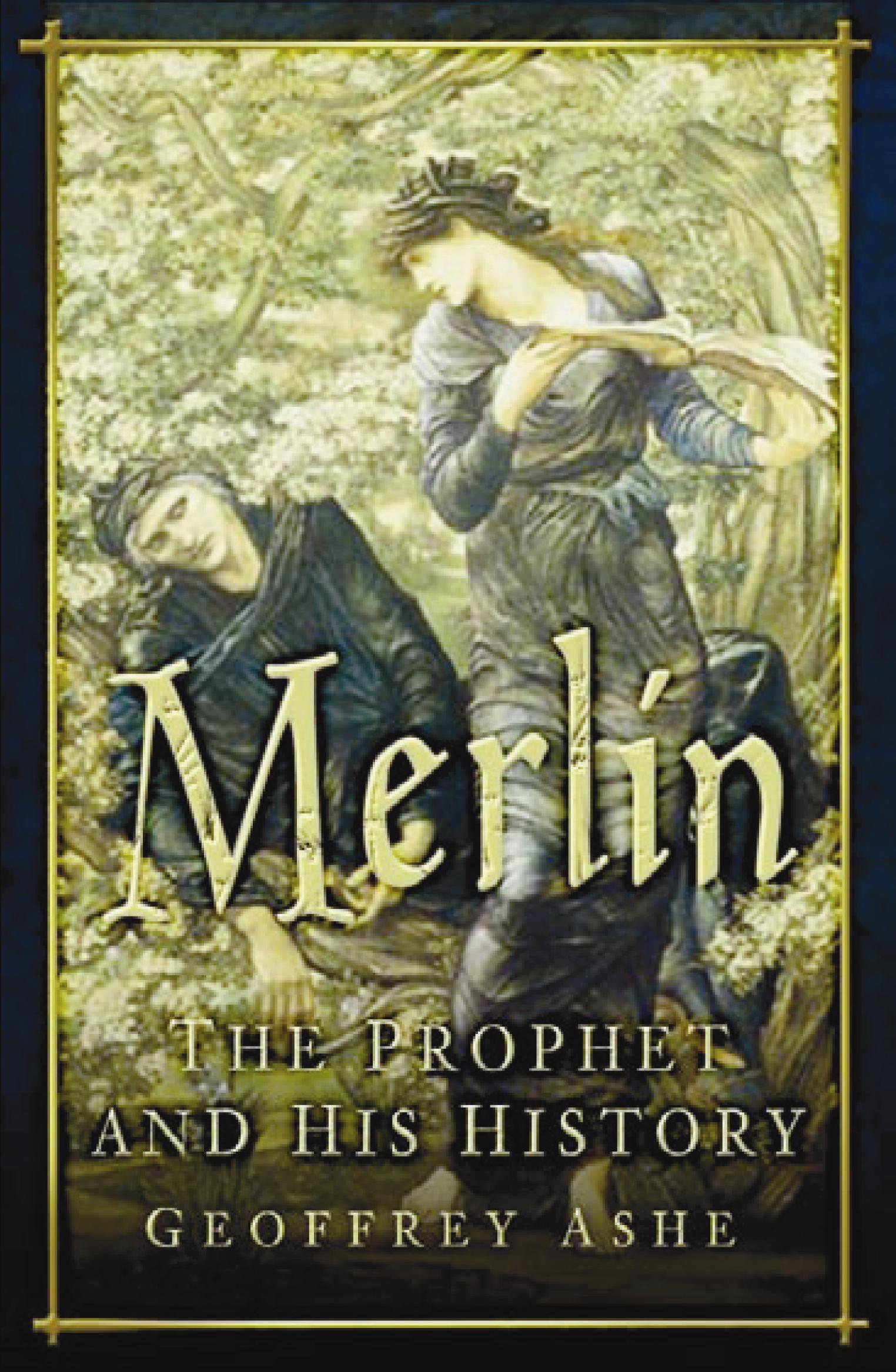Merlin
Merlin
THE PROPHET AND HIS HISTORY
GEOFFREY ASHE

Has it ever struck you what an odd creation Merlin is?
Hes not evil; yet hes a magician.
He is obviously a druid; yet he knows all about the Grail.
Hes the devils son; but then Layamon goes out of his way to tell you that the kind of being who fathered Merlin neednt have been bad after all....
I often wonder, said Dr. Dimble, whether Merlin doesnt represent the last trace of something the later tradition has quite forgotten about.
C.S. Lewis, That Hideous Strength, in The Cosmic Trilogy (London: Macmillan, 1989), p. 375
First published 2006
This edition published 2008
The History Press
The Mill, Brimscombe Port
Stroud, Gloucestershire, GL5 2QG
www.thehistorypress.co.uk
This ebook edition first published in 2011
All rights reserved
Geoffrey Ashe, 2006, 2008, 2011
The right of Geoffrey Ashe, to be identified as the Author of this work has been asserted in accordance with the Copyrights, Designs and Patents Act 1988.
This ebook is copyright material and must not be copied, reproduced, transferred, distributed, leased, licensed or publicly performed or used in any way except as specifically permitted in writing by the publishers, as allowed under the terms and conditions under which it was purchased or as strictly permitted by applicable copyright law. Any unauthorised distribution or use of this text may be a direct infringement of the authors and publishers rights, and those responsible may be liable in law accordingly.
EPUB ISBN 978 0 7524 7542 4
MOBI ISBN 978 0 7524 7541 7
Original typesetting by The History Press
Contents
Acknowledgements
M erlin reflects many years of reading, travel, and discussion, involving obligations to more people than could ever be recalled individually. A few Outstandingly valued contacts are mentioned in the text.
But I am happy to repeat a richly deserved tribute in a previous book. My supreme and special thanks are due to my wife Patricia, who made a truly extraordinary contribution by taking on massive tasks of transcription, revision, inquiry, and compilation. These things were done in an exemplary style and with an outpouring of enthusiasm that cannot be too highly praised.
I must record specific thanks for permission to use copyright material from the works designated:
The History of the Kings of Britain by Geoffrey of Monmouth, translated by Lewis Thorpe. Penguin Classics, 1966. Permission for use of extracts granted by Penguin Books Ltd.
The Once and Future King by T.H. White. Published by HarperCollins; originally, by Collins, 1958. Permission for use of extracts granted by David Higham Associates Limited.
That Hideous Strength by C.S. Lewis, copyright C.S. Lewis Pte. Ltd. 1945. Extract reprinted by permission.
Introduction
M erlin is an enigma. He is one of the strangest characters in legend and literature, and all the more enigmatic because there is nobody else like him, no basis for comparison or classification. He changes shape and he darts about. The obvious thing to say, the starting-point for any discussion, is that he is King Arthurs court wizard. But that is no more than the beginning of an account of him, and even the story of his association with Arthur, at least in its most familiar form, is briefer than anyone would suppose without actually looking it up.
Yet for someone so elusive, he has had an extraordinary impact. In the Middle Ages and long afterwards, almost everyone who knew about him at all believed that he was a real person and had lived in the fifth century. That was the case not only in England. His fame was international. Copies of prophecies he was said to have uttered on a hill in Wales were passed around and interpreted. French commentators tried to fit them to facts and show that they had been fulfilled; Italians had the audacity to put him on a level with biblical prophets, such as Isaiah. Actually, no one understood the alleged prophecies, and it is an open question whether there was much to understand. Yet they revolutionised thinking about prophecy in general, giving it a new kind of status, and the revolution continued. Without Merlins lingering presence in European imagination, there would very likely have been no Nostradamus.
People believed something else about Merlin: he was a magician as well as a prophet. They were less interested in him in that capacity. His most notorious feat of magic, at Tintagel in Cornwall, verged on the ludicrous. Yet by common consent it had laid the foundation of a glorious age in British tradition, the age of King Arthur. It was Merlin who had the Round Table made for him; it was Merlin who obtained the wonderful sword Excalibur. Plantagenet and Tudor sovereigns took this Merlin-sponsored Utopia seriously, and sometimes entertained notions of reviving it. Merlins presence still lingered in the England of Elizabeth I. It has resurfaced at intervals ever since, with or without literal belief, to inspire poems, novels and films.
Was he real? And why the persistent fascination, even in an age that often reduces him to a semi-comic old gentleman with a long beard and a pointed hat? We can look for him, of course. We can search in a famous book that looks like history... but unfortunately it isnt. We can trace him in medieval fantasies of love and adventure... but their authors were not much concerned with facts. Different theories have made him a god or a lunatic, or a fabrication of Welsh propaganda.
The Merlin-seeker must face an issue that applies to Arthur himself. It is no use asking the direct question, Did King Arthur exist? There is no way of cutting through the entanglements of legend so as to arrive at a plain yes-or-no answer. We can ask, How did the legend originate, and what facts is it rooted in? That question can be answered, at least to some extent. The investigation may or may not point to a real person behind the legend. The same question can be asked about Merlin. An answer is possible, and that answer can do something to explain his uniqueness, his persistent reputation, and his paradoxical spell whatever it may say about him as a figure in history. We can go on from there, and follow his multiple manifestations through the centuries. Whether the result counts as biography, or at least has biography in it, I leave to the persevering reader.
1
The Fatherless Boy
M erlin makes his first appearance by name in a work called The History of the Kings of Britain. Published in 1138, or thereabouts, this was one of the most influential books of the Middle Ages. It created a framework for a whole body of memorable literature. It established images of the British past throughout western Europe, images that have never quite been eradicated. Yet it was not, as it professed to be, a history of the kings of Britain not really.
Its author, who introduced Merlin to the public, is known as Geoffrey of Monmouth after a town on the south-east fringe of Wales, perhaps his family home. A genius in his own very peculiar way, Geoffrey is elusive. He was probably Welsh; he was a cleric certainly, a teacher very likely. At Oxford from 1129 to 1151, he was probably attached to a school, though the university did not exist yet. Moving to London, he was made Bishop of St Asaph in Wales. It is not clear whether he ever took up the appointment. He died in or about 1155.

